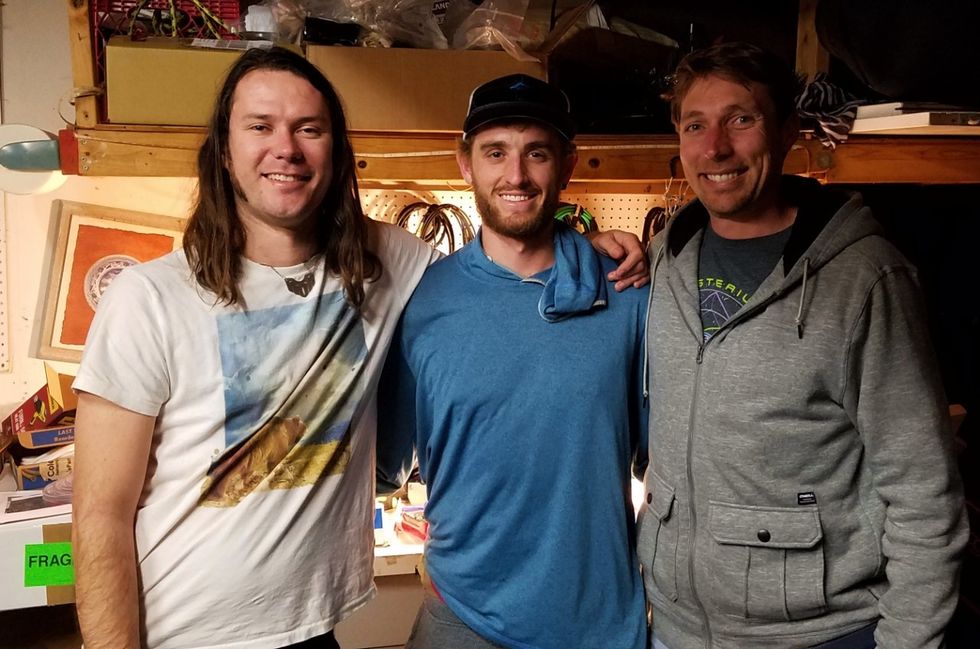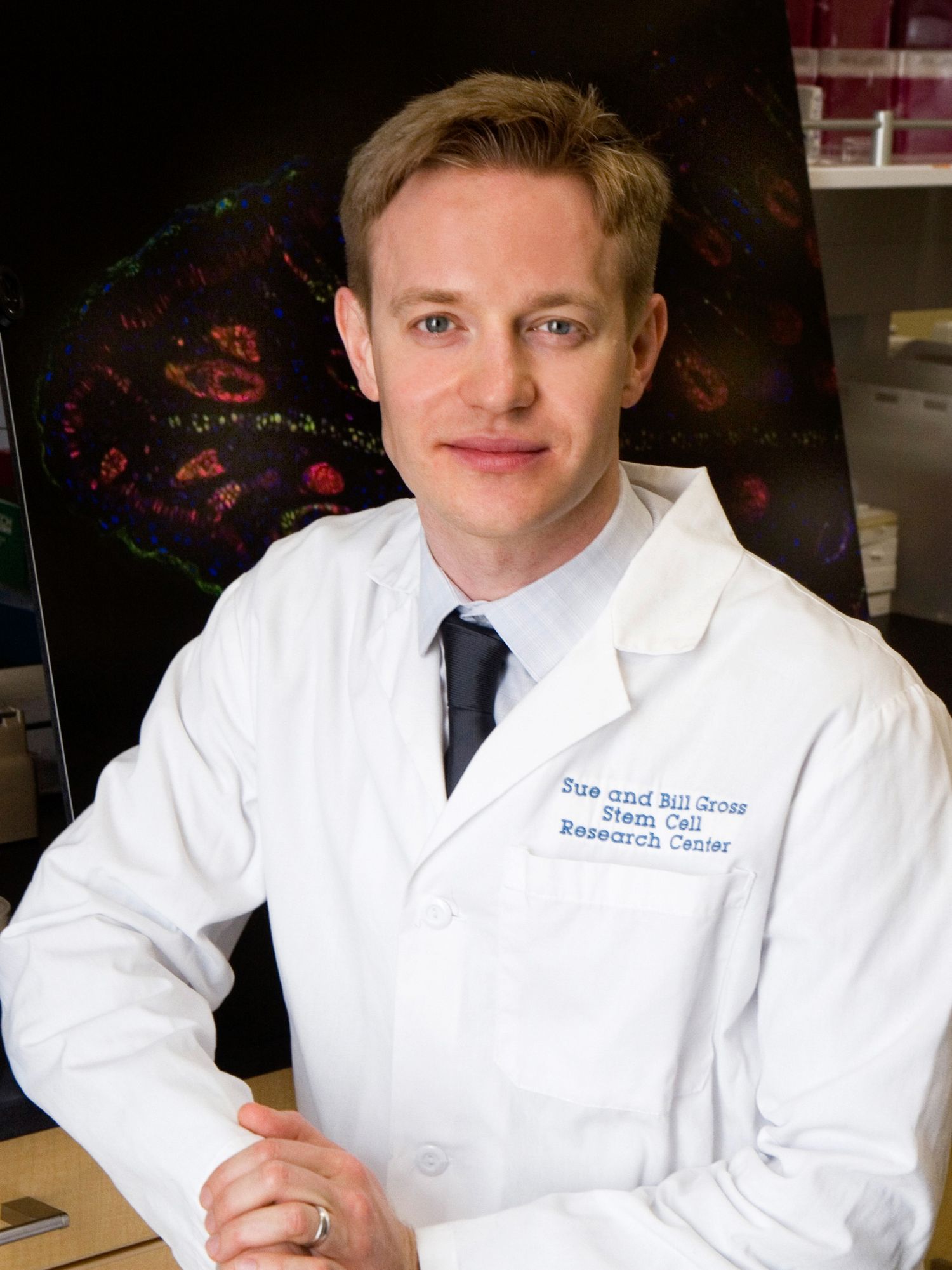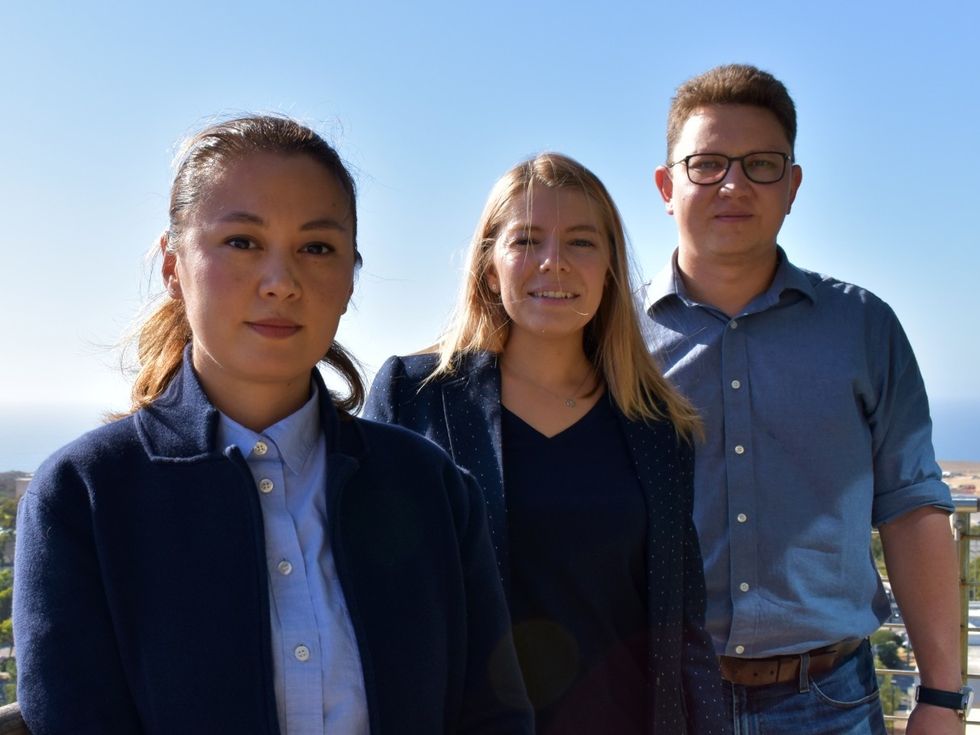An Early Peek at First Look's Showcase of Cutting-Edge Science Startups
Francesca Billington is a freelance reporter. Prior to that, she was a general assignment reporter for dot.LA and has also reported for KCRW, the Santa Monica Daily Press and local publications in New Jersey. She graduated from Princeton in 2019 with a degree in anthropology.

Eliminating battery waste, developing new hair growth therapy, fixing carbon dioxide. These are among some of the ambitious problems that companies are trying to solve at the First Look SoCal Innovation Showcase beginning Tuesday.
Hosted by nonprofit Alliance for SoCal Innovation, the online event connects early-stage tech and life science companies with investors and serial entrepreneurs.
Founders of the 30 companies selected to participate come from universities and academic institutions across the region. Tech developed by these researchers and scientists is just emerging from labs, said Steven Gilison from the Alliance. This means most take longer to fundraise than typical startups and this opportunity often represents the start of their funding journey.
It's the third year the Alliance will host the showcase, which has been running for over 10 years. The event starts Tuesday with a daylong focus on life science founders and ends with the next day centered on tech. Each day begins with a keynote presentation and ends with a VC investor panel — a feature that last year brought in funding for several startups.
Here's a snapshot of the founders gearing up to pitch:
BioZen Batteries Aims to Solve Our Energy Storage Issues

Left to right: BioZen Batteries' co-founders Zach Rengert, Nate Kirchhofer and Eric Brigham.
Nate Kirchhofer, co-founder and CEO of BioZen Batteries, wants to make batteries that will outlive him.
Santa Barbara-based BioZen creates organic electrolytes, the active material inside a specific type of battery called a "redox flow battery." It's a different type of technology that differs from the lithium batteries often used in mobile applications like cars and phones. Only 5% of those get recycled.
BioZen's batteries are well suited for green, large-scale energy storage, Kirchhofer said. For example, batteries that help solar panels connect to the grid or provide backup during disasters when the power goes out.
Kirchhofer, an electrochemist, founded the company in June of 2019 with Zach Rengert, a materials chemist, and Eric Brigham, the company's CFO. Kirchhofer and Rengert met while getting their doctorate at UC Santa Barbara.
There hasn't yet been a push for sustainable batteries because it isn't economically incentivized, Kirchhofer told dot.LA. He said that his batteries are cheaper than competitors.
Kirchhofer's product fits into a growing renewable energy market and a social movement in which individuals want to do their part. He's worked for four startups but says this one is poised to make the biggest impact.
"If it's not our generation that solves climate change, there's not another chance. There's not another Earth." he said. "If we can make these batteries happen, we can truly integrate renewable energy and stop the petroleum-dominated energy paradigm we're part of."

Amplifica's founder Dr. Maksim Plikus
Amplifica Treats Baldness with Mole Molecules
Back in 2013, Amplifica's founder Dr. Maksim Plikus began studying hairy moles. Though some find the growths unsightly, his work showed promise for baldness treatment.
He, along with colleagues at UC Irvine, discovered that molecules from moles that grow excessive hair can induce follicle growth when administered anywhere on the skin.
"As long as you can tease it out and replicate it in the form of purified molecules, you can achieve essentially what we think would be a novel, revolutionary solution to baldness," Plikus told dot.LA.
Plikus said his company is the first to solve hair loss by replicating cells from hairy moles to stimulate hair growth. At the moment, hair follicle research has emerged as a leading experimental model for studying stem cells.
By 2025, hair-loss products are projected to surpass $12 billion, Plikus said. But only two drugs are FDA approved and require daily treatment in the form of pills, which he said come with long-term side effects.
Amplifica says it's poised to put a more effective and convenient solution on the market. Pinkus' proposed product is a topical solution requiring less frequent application, like getting Botox injections a few times per year.
FixingCO2 Aims to Recycle Fuel from the Air

FixingCO2's team. CEO Eldar Akhmetgaliyev is at right.
FixingCO2 got its start on Mars. Like the name says, the company aims to fix the global carbon problem that's fueling climate change.
In 2018, co-founder Alma Zhanaidarova's professor and research group at UC San Diego received a grant from NASA to build out a reactor that makes renewable fuels and chemicals from carbon dioxide, often a byproduct of industrial waste. The technology was being developed in anticipation of a one-day human mission to Mars, where 95% of the atmosphere is carbon dioxide.
Now, the San Diego-based startup is commercializing their product for earthlings.
"It's a different application but the same core technology," co-founder Eldar Akhmetgaliyev told dot.LA. "Instead of making fuels from oil or any other fossil sources, we can make them essentially from air."
The team is developing the hardware to capture industrial emissions blamed for much of the Earth's warming. The product has significant application for the aviation industry, where planes are built to burn jet fuel that produces carbon emissions.
"These kinds of technologies provide them a pathway to decarbonization," he said. "They can use fuels made from CO2 so they're not contributing to climate change."
As fires burn through California and the Pacific Northwest, Akhmetgaliyev said there's urgency for innovators in the carbon tech market. "We're pretty much turning our planet into Mars," he said.
He said that by 2050, about 14% of overall carbon reduction will come from carbon capture and utilization (CCUS) technology like his.
"The market hasn't met its opportunity and with the effects of climate change being seen everyday, there's going to be more drive towards these low carbon technologies."
- Can LA County's New Fund Get Local Biotech Startups to Stick ... ›
- Where Is the Investment in New Music Technology Going? - dot.LA ›
- Cutting Edge Science Startups to Watch - dot.LA ›
- The Early-Stage Startups in LA Set to Take Off in 2021 - dot.LA ›
- First Look Features Life Science Startups from SoCal Schools - dot.LA ›
- CarbonCapture Raises $35 Million to Tackle Climate Change - dot.LA ›
- First Look SoCal Innovation Showcase 2022: 3 Things to Watch - dot.LA ›
- Southern California Grows Roots as Potential Hotspot For Hair Loss Therapies - dot.LA ›
- Largest Battery Project in California Goes Online - dot.LA ›
- Largest Battery Project in California Goes Online - dot.LA ›
- LA Tech Raises: Griffin Capital Raises $4.9M Third Round - dot.LA ›
Francesca Billington is a freelance reporter. Prior to that, she was a general assignment reporter for dot.LA and has also reported for KCRW, the Santa Monica Daily Press and local publications in New Jersey. She graduated from Princeton in 2019 with a degree in anthropology.





 Image Source: Skyryse
Image Source: Skyryse